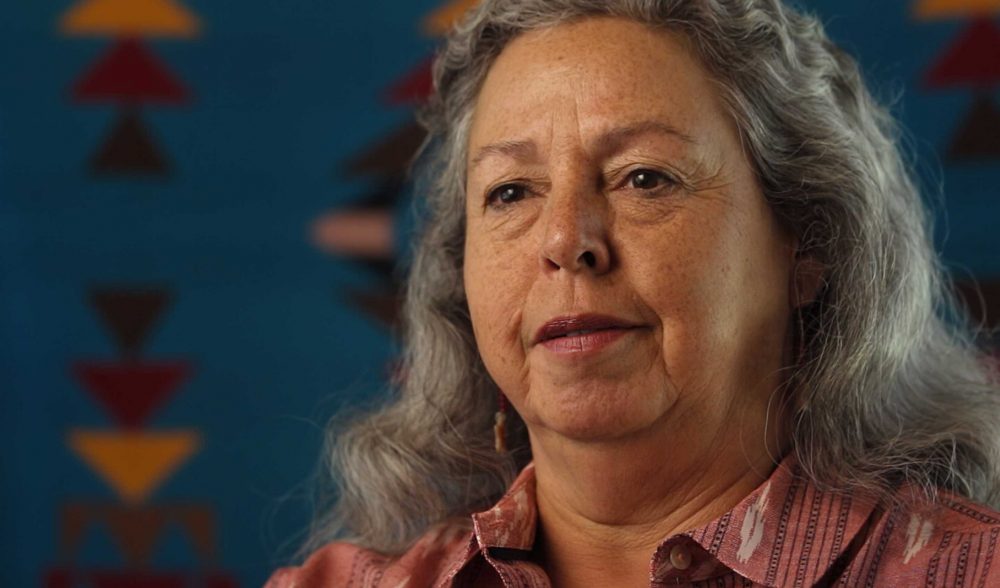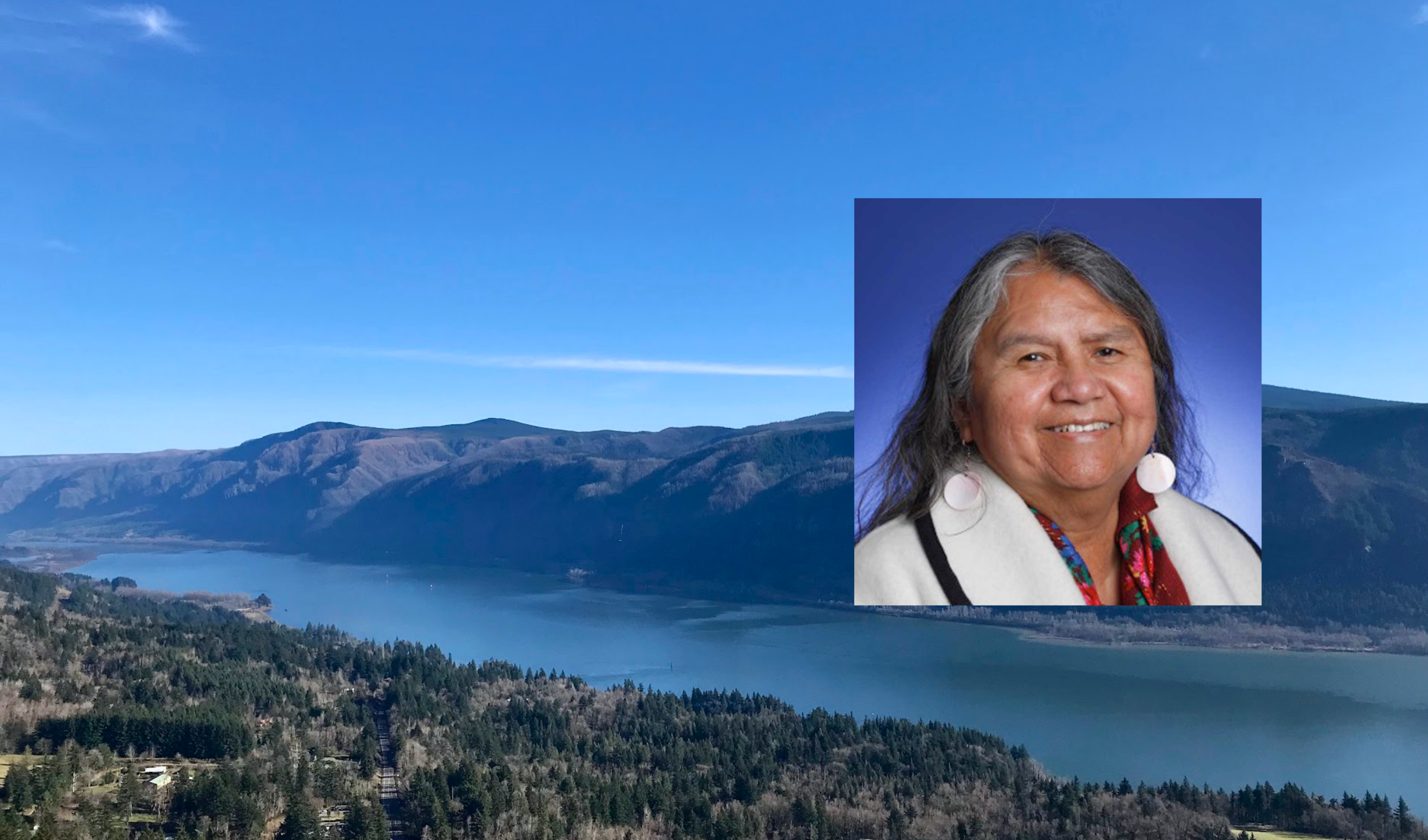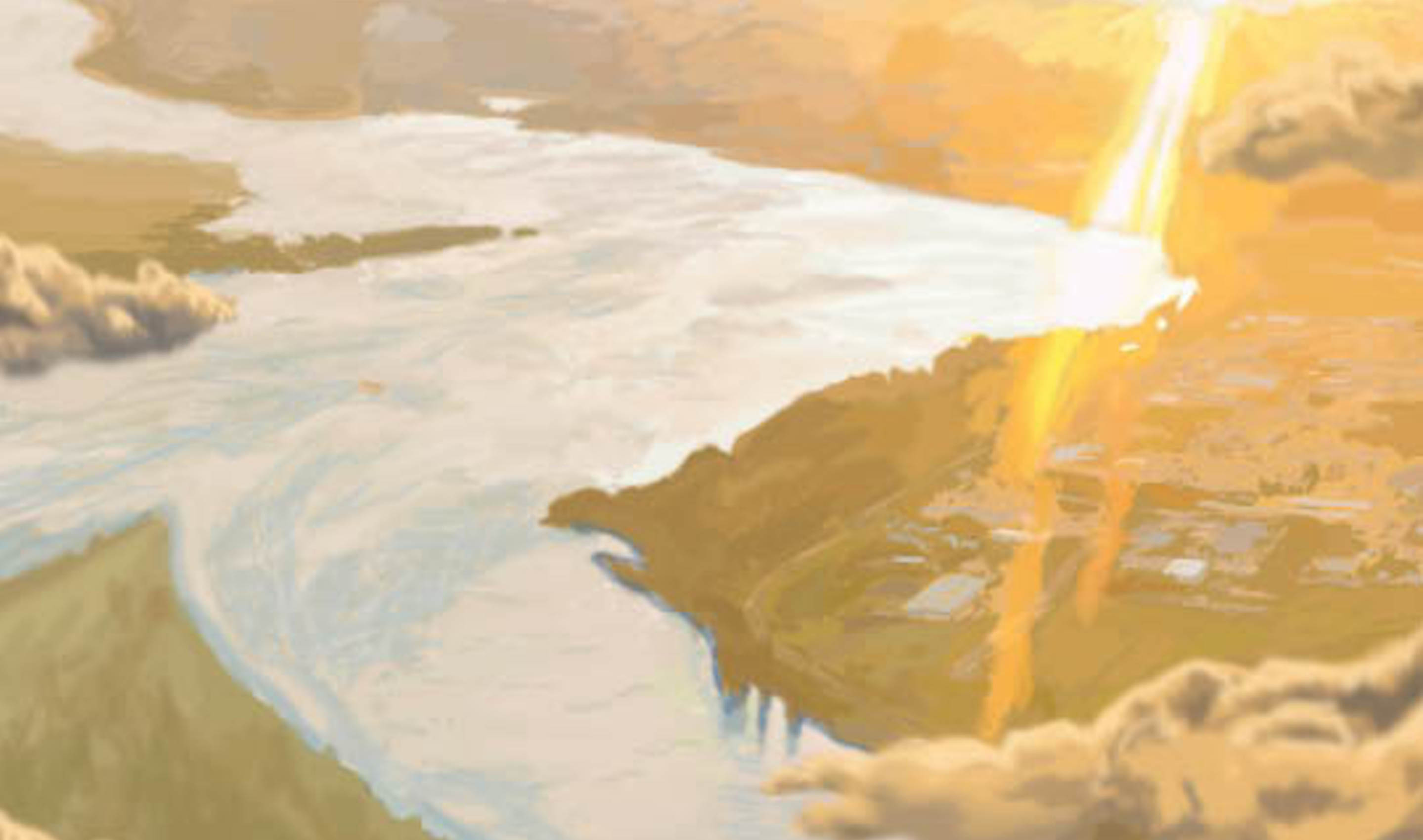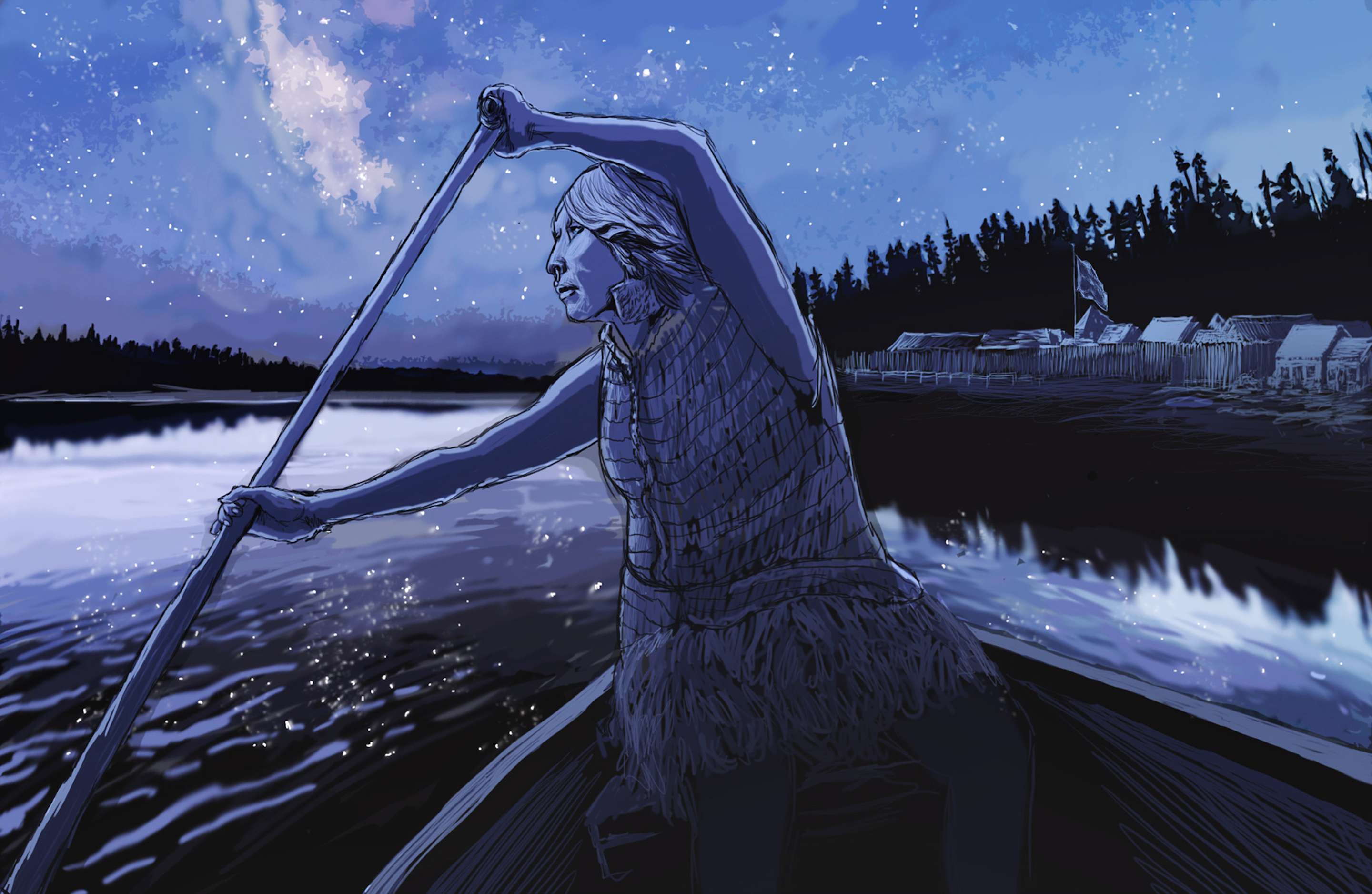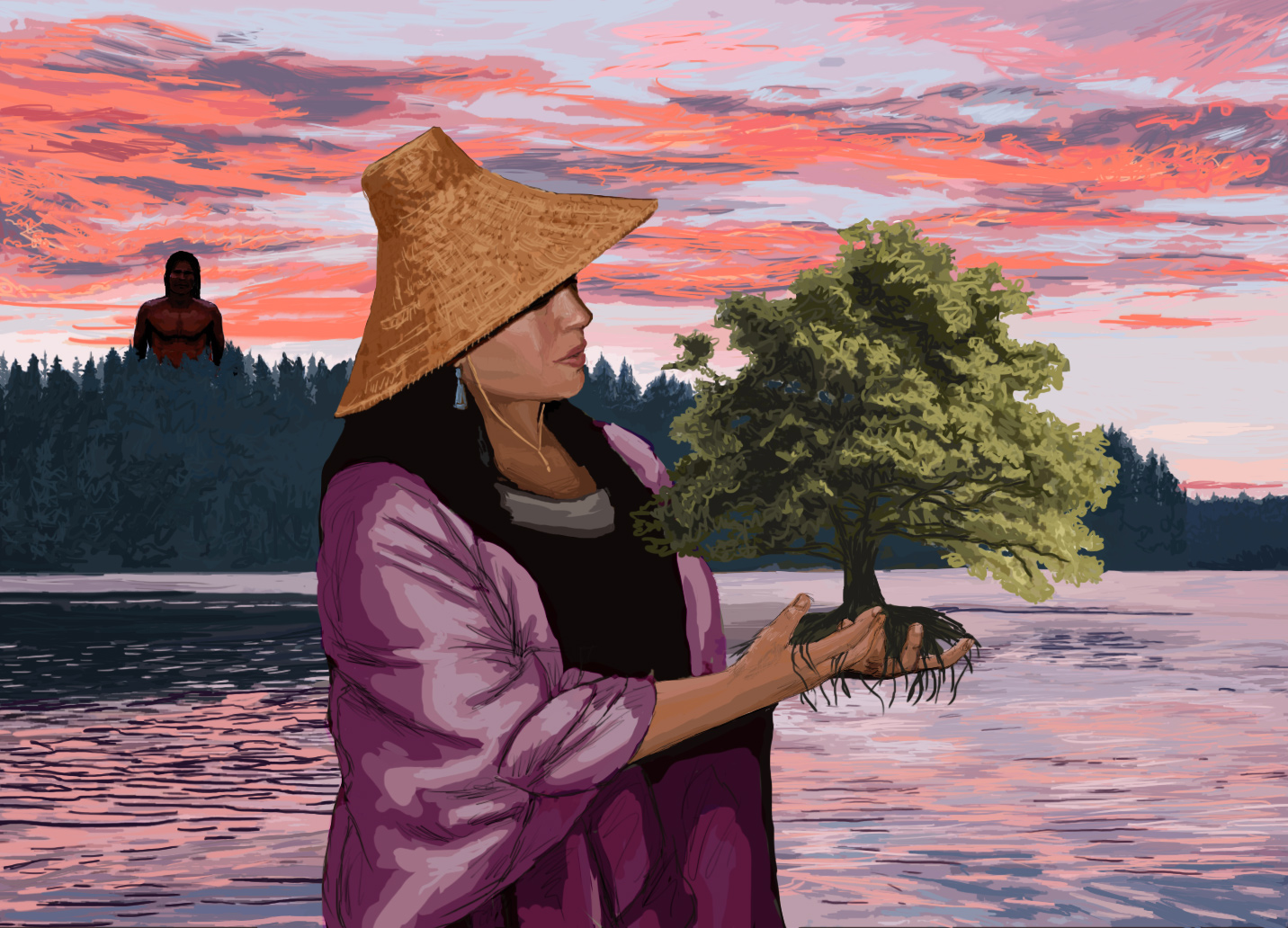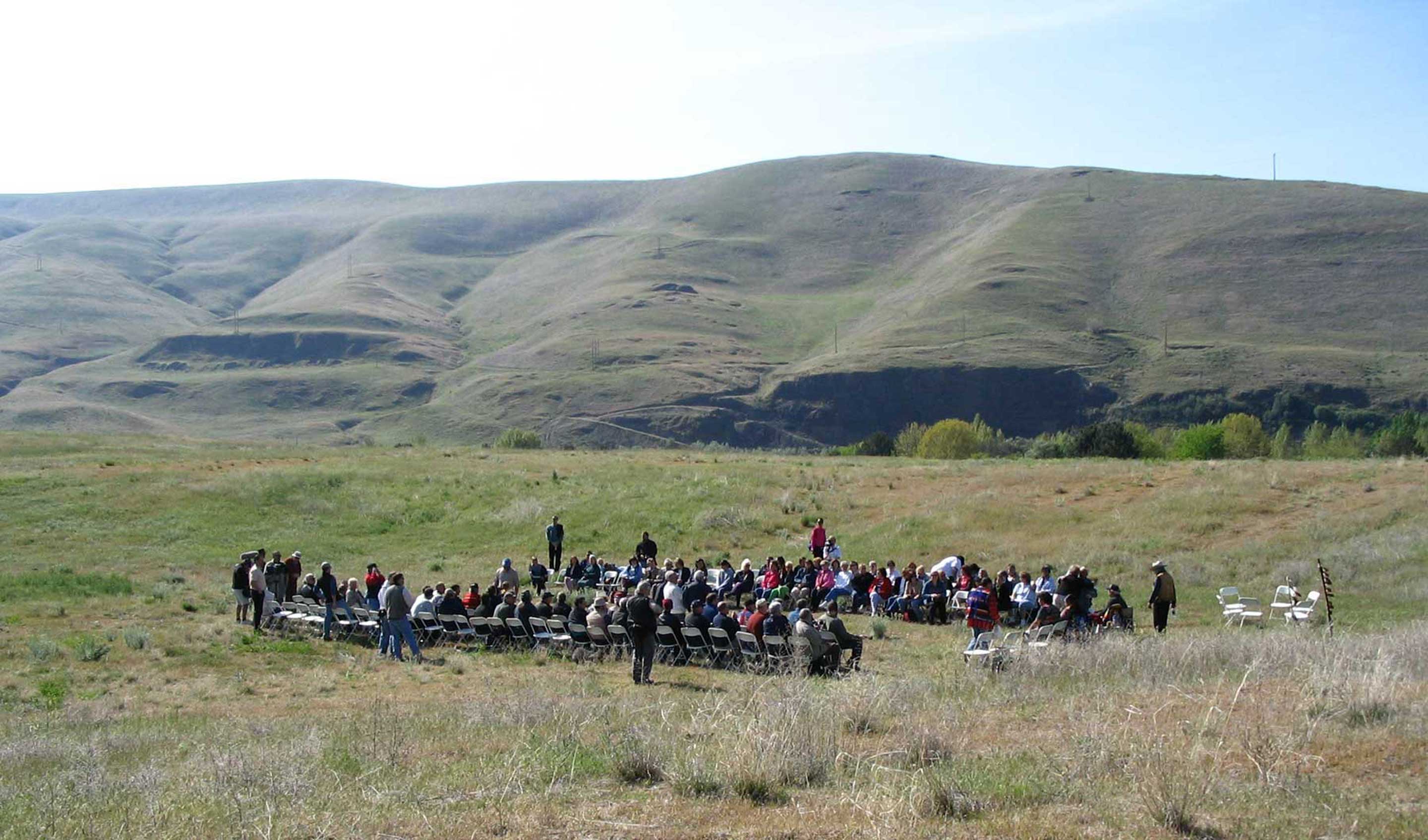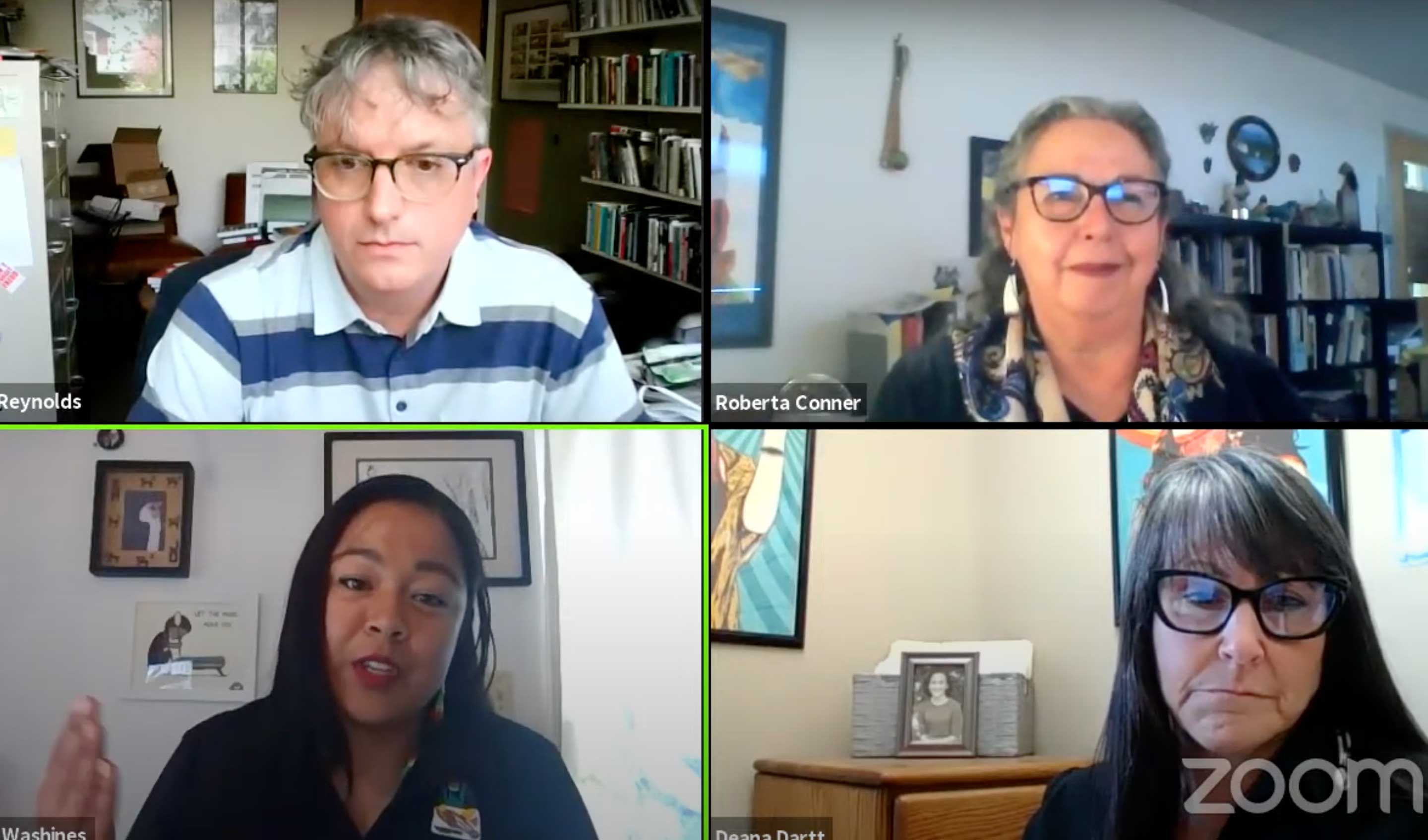Confluence Library
What is the legacy of dams on the Columbia River? What would be the benefit of restoring salmon to the Columbia and reviving the health of the river? These are the questions considered in the latest volume of the Confluence journal Voices from the River
Roberta Conner tells how her grandfather was reintroduced to his homeland and the importance of “stories about the land and how the land takes care of us.”
In this episode, we hear from Bruce Jim, an Elder with the Confederated Tribes of Warm Springs and fish commissioner with the Columbia River Inter-Tribal Fish Commission
In this episode, we talk with Patsy Whitefoot. She’s an elder from the Yakama Nation, a well-known leader in education circles, an activist, and a Confluence board member. She talks about the Columbia River system, her experience with it, and the importance of reciprocity.
In November 2022, Confluence launched a new publication. Voices of the River journal features articles, stories, poetry and artwork by Native American writers and artists from Northwest Tribes. Confluence and its supporters celebrated the release of the inaugural issue of the journal during a launch party and panel discussion on November 18, 2022 at the Oregon Historical Society in Portland, which is shared here in podcast format.
Welcome to the inaugural issue of Confluence’s Voices of the River journal! As Digital Content Manager at Confluence, I have had the honor of acting as the managing editor for this publication.
Carlee Wilson tells the story of her ancestor, Ilchee, in this creative piece.
History did not record her wedding, how she celebrated the birth of her daughter, or what emotions gripped her when she was told her husband went to live in the sea. There’s been no acknowledgment of her own death, not even a date.
This year the Vanport Mosaic asks us to consider the WE in “WE THE PEOPLE,” and how we can Remember, Repair, Reclaim, and Re-imagine our collective stories. Confluence is partnering with the Vanport Mosaic to address this question, through a Story Collection that offers Indigenous perspectives on monuments, memorials, healing, and how to tell a more inclusive version of history to the public, through video interviews, short films, podcasts, articles, and more.
Communities across the nation have faced a reckoning with their monuments. The last year has seen a groundswell of questions about who gets to define our stories in the public sphere. On April 27th, 2021 we held a conversation consider modern examples of healthy commemoration of Indigenous history and cultures.


